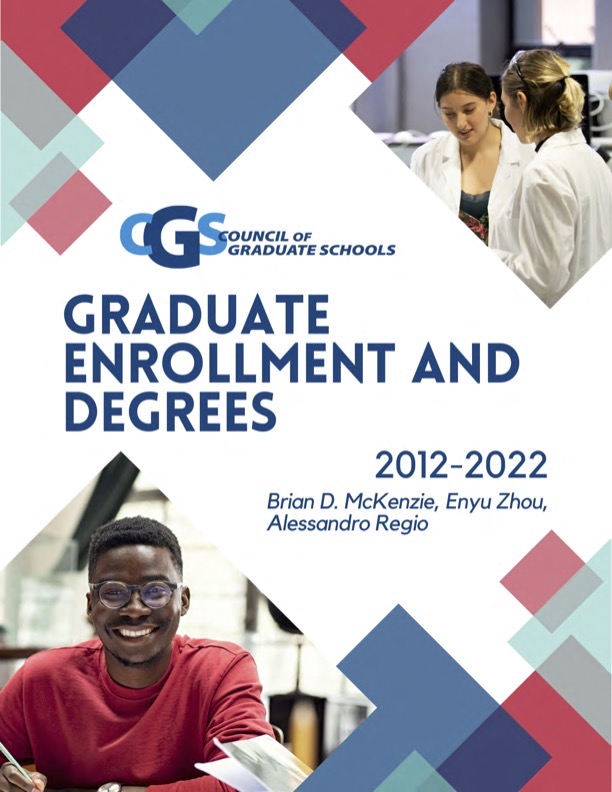 A new report from the Council on Graduate Schools offers a look at enrollments in graduate schools in the United States. At the onset of the global pandemic in 2020, enrollments in undergraduate colleges and universities and most notably enrollments in two-year colleges dropped. But graduate enrollments increased by 2.5 percent from 2019 to 2020.
A new report from the Council on Graduate Schools offers a look at enrollments in graduate schools in the United States. At the onset of the global pandemic in 2020, enrollments in undergraduate colleges and universities and most notably enrollments in two-year colleges dropped. But graduate enrollments increased by 2.5 percent from 2019 to 2020.
Now, the drop in higher education enrollments has spread to the graduate level. Applications for admission to U.S. graduate schools rose by nearly 4 percent between Fall 2021 and Fall 2022, demonstrating college graduates’ continued demand for advanced training. However, domestic first-time graduate enrollment declined by 4.7 percent between Fall 2021 and Fall 2022.
The drop in enrollments was even more pronounced among groups traditionally underrepresented in graduate education. Between Fall 2021 and Fall 2022, first-time graduate enrollment decreased by 7.8 percent among Black/African American students, 5.7 percent among Latinx students, and 1.6 percent among American Indian/Alaska Native students.
Blacks were 11.8 percent of first-time graduate students. But only 4.5 percent of U.S. citizens and permanent resident students enrolled for the first time in physical and earth sciences were Black. Blacks were 5.7 percent of first-time graduate students in engineering.
Between Fall 2021 and Fall 2022, total enrollments in graduate school decreased by 4.8 percent among Black/African American students.
Black/African American students were particularly underrepresented in several fields. While they constituted 11.8 percent of U.S. citizens and permanent resident graduate students overall, they accounted for only 3.8 percent of physical and earth sciences enrollees. Similarly, they were underrepresented in engineering (6.0 percent), biological and agricultural sciences (6.5 percent), and arts and humanities (7.3 percent).
Here is a link to the full report: Graduate Enrollment and Degrees: 2012 to 2022


I think part of the reason for this decline is funding as well as the cost of graduate education. I would LOVE to go back and trying to find funding as a black female that has worked in industry for several years has been a challenge. Would love to get guidance in navigating a return to “the classroom” and finding funding resource because that is widely needed. People have families and the cost of everything is going up, so to justify the astronomical cost of graduate education needs to be offset.